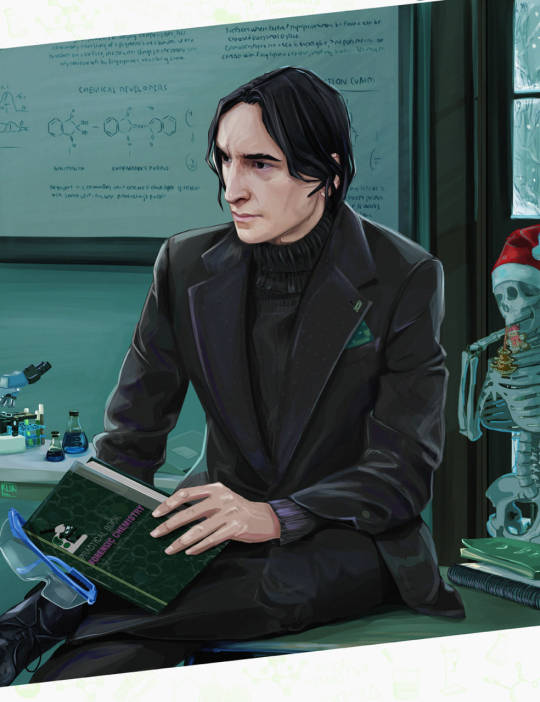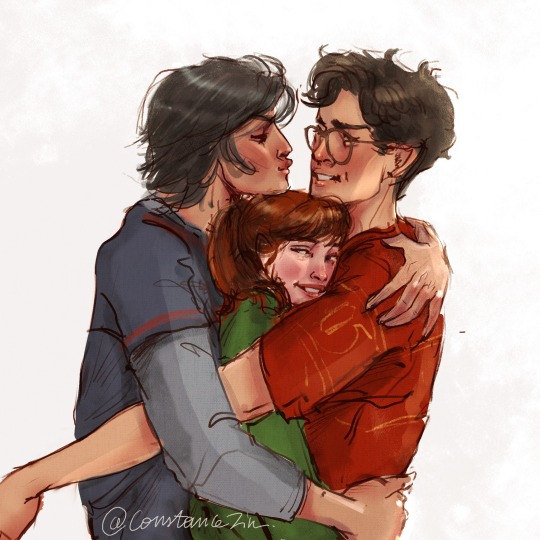Text

the time is right, your perfume fills my head
the stars get red, and, oh, the night's so blue
91 notes
·
View notes
Text
Why do people think Lily would have stayed with Severus if James had died in Voldemort's attack? It's something I never understood, because what we see of her character in the books is a person who is not merciful and can be spiteful.
She didn't forgive him for calling her a Mudblood, even though at the time he was being harassed in front of several classmates. Nothing in the text suggests that they spoke again after this, although the two were childhood friends. I find it very difficult to believe that she would forgive the person who told Voldemort about the prophecy that put her family in danger. And in this context Severus wouldn't even have done the years of atonement as a spy to protect Harry.
I've read a lot of good Severus/Lily fics, but when it came to stories that took place right after that night in '81, I couldn't convince myself that she would actually forgive him. I think Lily is similar to Petunia in this aspect, someone capable of holding a grudge for years, people like to paint her with the best qualities, but sometimes they forget that it is the flaws that make these characters so human.
7 notes
·
View notes
Note
I come to you with this question because, having read all your other metas, I think you'd be the right person to ask. Id love to know what you think about Regulus because I have a very hard time understanding his character. Partly because of fanon characterization of him makes him seem like some secret rebel against Voldemort and partly because I just can't really understand any of his motivations. But regardless, I think what we know about him in canon is so interesting - i just can piece it all together. I'd love to know what you think!
(Sorry for the longish ask)
thank you very much for the ask, @hauntingpercival! regulus is a character i also find a bit of a mystery, and so thinking through this answer was really fun.
i'll start by being clear that i'm certainly not a regulus fan. by which i not only mean that i don't vibe with the fanon!regulus of the marauders fandom, who is essentially an original character - and you can read my views on jegulus here... [spoiler alert: i do not back it] - but that when he appears in my own writing in ways i'd like to hope feel influenced by his canon form, i always find myself focusing on aspects of his character which are rather unlikeable.
there is a little bit of a discourse-y reason for this, which will be pertinent to the rest of this answer...
i really don't like the sort of "omg aristocracy is so hot and sexy and interesting" tropes which are so prevalent in writing around the black family. this is firstly because i don't think that aristocracy is in any way these things - and i find it distasteful to imply otherwise - which is because i'm a prole who lives somewhere still bearing the scars of british colonisation who also went to the sort of university where one sometimes encountered aristocrats and they were all cringe and unbearable.
but it's also because it's not - and i will genuinely die on this hill - an accurate reflection of how the blacks are presented in canon. not only does it take sirius' comment that his parents considered themselves "practically royal" to be a statement of fact [sirius is quite clearly taking the piss out of his parents' pretensions], but it also misses that the purpose sirius' discussion of orion and walburga's politics serves in the narrative of order of the phoenix is to show how mainstream their blood-supremacist views were.
sirius tells us that his parents were not death eaters, but that they nonetheless thought voldemort's overtly sectarian political aims were correct. in this, they hold the political views order of the phoenix emphasises belong to cornelius fudge - unimaginative, deferential to the class system, casually prejudiced, and so on. orion and walburga function as a way of showing us just how entrenched the death eaters' manifesto is, how close voldemort came to winning the first war, and what an uphill struggle the order faces to unravel the roots blood-supremacy has in the wizarding world.
[and they also show that the baffling vibes of grimmauld place - while these are made worse by it being three different gothic literature tropes in a trenchcoat - are wizarding norms, rather than evidence that the blacks were uniquely immersed in dark magic. the decor at grimmauld place - and the family's collection of dark artefacts - is the same as that found in malfoy manor, even at a time when lucius malfoy is considered eminently socially respectable. this is a point we will come back to...]
i think, then, that it's crucial to approach regulus not as a swaggering aristocrat, but as someone from an upper-class background which - while still posh, rich, inferring enormous social capital, well-connected - was unremarkable within the circles in which he moved.
by which i mean that hogwarts is based on real-world institutions - britain's elite boarding schools - which are so exclusive and expensive to attend that the student body are from a class-background which seems inhumanly exclusive, affluent, and powerful from an outsider perspective [i.e. from the perspective of someone from the majority middle- and working-classes] but which seems completely normal within the student body itself.
[i.e. nobody at eton with princes william and harry will have been astonished to have been at school with a royal, because they will have been familiar with their social circles, cultural experiences, level of wealth, and expectation of knowing someone with considerable social influence from childhood.]
while hogwarts appears to be a state-funded school [although it also expects an enormous amount of financial investment on the part of parents - such as buying all the textbooks], the fact that its real-world parallels are so elite [and, therefore, come with a specific "look" in the british cultural imagination] means that the student body is incredibly well-heeled and working-class students stand out enormously in a way very rich students do not. hogwarts also exists - like real-world elite schools and universities - as a way of propping up the status quo of the class system by which the wizarding world functions. its pupils have an expectation of procuring jobs in the civil service and other influential professions - using not only connections established at school but connections they possess through their [male] relatives. many hogwarts students we meet in canon are related to someone who occupies an elite position in the wizarding executive or is otherwise socio-politically influential.
at school, then, regulus would have been completely, perfectly average in terms of social position. i also like the idea of him as perfectly average in terms of intellect - and as a good, but not exceptional, seeker. this provides a really interesting point of contrast with sirius, who - while he's also not socially unusual in terms of class [and i will never vibe with tropes like him being followed by whispers going "omg, he's a black, that means he's important"] - stands out in that he's the first black in generations not to be in slytherin, that he's precociously intelligent, and that he - and the rest of the marauders - are class clowns and show-offs.
and i like the idea that this would give regulus a desire to stand out - to be considered the most important person in the whole school. we can get a hint of this in canon - the picture of sirius and his friends harry sees in deathly hallows is immediately contrasted with a picture of regulus sitting in the seeker's position in the team photo. the seeker who acts alone.
and i think this desire for notoriety is what drives him to sign up to become a death eater - that he decides he's sick of having parents with the perfectly normal level of social influence and a brother who is more popular than him, and that he thinks that he's cleverer and more worthy of attention than everyone else in the castle and the world better start showing it.
[and i've never bought - i'm afraid - the idea that he and sirius are close. it's clear from canon that regulus had no issue being thought of as "a much better son" than sirius, and that he colluded with his parents against him. sirius can love him - and miss him, and regret how they were never able to repair their relationship - but i don't think this means that he feels he's lost a bestie.]
that he holds sincere blood-supremacist views is a given - because within the world in which he lives, these are completely normal and held completely casually [i.e. that slughorn is shocked lily could be muggleborn because she's clever]. the more virulent expression of these views - saying "mudblood", etc. - is clearly considered ill-mannered, but not something which might have any real impact on one's social standing [draco malfoy uses the term with impunity while at school, and nobody ever considers that informing a teacher of this would result in him being punished; equally, nobody from the crowd who witness the event reports snape for calling lily a mudblood].
and so i think it's clear that he becomes interested in joining the death eaters - and starts putting together his terrorism pinterest board - because his mainstream belief that being pureblood is better crashes into his desire to be special to form a conviction that riding the coattails of voldemort's ostentatious malevolence is the way he can become famous.
[in this, he is very like snape.]
my assumption is that regulus is one academic year below sirius, meaning that he was born in 1960-1961. my assumption is also that he receives his dark mark while still at school - probably at some point in his newt years [so the academic years 1977-1978 and 1978-1979].
the standard view - expressed vehemently by various order members in half-blood prince - is that voldemort has no interest in death eaters who are still at school.
the order is wrong about this, obviously - not only when it comes to their refusal to accept that harry's right about draco malfoy being marked, but also in the fact that several of the death eaters who are very young at the end of the first war, barty crouch jr. [who is still young enough to be described as a "boy" in 1982 at the earliest], chief among them, must have been taken on by voldemort prior to graduating.
but it seems fair to say that admitting teenagers into his inner circle is unusual for voldemort, especially when those teenagers don't really offer him anything useful. crouch, for example, could be put to work informing on his father's movements. regulus is - as i've said - just ordinary.
and so my view has always been that regulus is marked by voldemort as a favour to bellatrix. i think this partially because i'm bellamort trash, partially because i think it's a nice narrative parallel between regulus and draco [who are very similar] to have bellatrix be responsible for regulus' recruitment when she's canonically vociferously in favour of draco's, and partially because realising that voldemort thinks of him as just some guy who warrants [essentially] a pity dark mark would be a big blow to regulus' conviction that joining the death eaters would make him impressive.
[i also think regulus is recruited before 1978 because i think there has to be a shift in voldemort's modus operandi at about this point, in order for the fact that sirius says that his parents got cold feet about what the dark lord was prepared to do after regulus became a death eater to make sense. my view has always been that voldemort's violence prior to c.1978 overwhelmingly targets state institutions and people connected to them and/or people with known anti-voldemort political views, meaning that ordinary citizens can regard these people being killed or injured as reasonable risks of their jobs and/or behaviour. and then that after c.1978, the dark lord begins targeting civilians - including upper-class pureblood civilians - indiscriminately, which makes his casual supporters start to waver a bit.]
so, let's suppose that regulus leaves hogwarts in june 1979 and finds himself expected to participate as a full death eater, after having been let off all the dirty work by virtue of being at school...
as i've said, regulus has an enormous number of narrative parallels with draco malfoy. and i think that the best way to think about him is to write him as sharing draco's canonical attitude to voldemort's cause - that he believes whole-heartedly in the message of blood-supremacy the dark lord promotes and that he has no problem with people he considers subhuman [mudbloods and blood-traitors] or unimportant [faceless families massacred in their own homes] being subjected to violence in the name of that message, but that he lacks the character traits necessary to perform that violence himself, to see it done to people he likes, or to witness what it actually involves versus the image he has of it in his head.
and so i imagine he starts struggling pretty quickly with the fact that being a death eater isn't quite as easy as he thought it would be when he was making voldemort fancams on tiktok. and that part of the reason he's primed to turn against the dark lord is because of the tension he feels warring within him at the fact that he's still a blood-supremacist, still desperate to be important, and yet growing disenchanted.
i don't however, think this is why he does what he does... so let's get into that:
why does regulus turn against voldemort?
let's be clear about one thing - regulus turning against voldemort has nothing to do with him having some sort of damascene conversion against blood-supremacy.
[or, at least, that's what i think.]
the outline of regulus' defection that we get in canon goes as follows:
voldemort asks someone to lend him a house elf. we know that regulus volunteers kreacher, because he told kreacher so - and so i imagine voldemort mentions at a meeting that he wants to procure an elf [although, of course, he doesn't elaborate on why] and regulus immediately jumps up and says "pick me, my lord" because he sees this as an opportunity to get voldemort to finally notice him.
his assumption must be that voldemort will use kreacher for a purpose which is considered normal in wizarding society - i.e. that he will require him to do something akin to domestic service, perhaps preparing potions ingredients.
it evidently does not occur to him that voldemort would transgress this social boundary and harm kreacher. not - to be clear - because i think that regulus was some kind of abolitionist legend, but because we see several characters express the view in goblet of fire that how barty crouch sr. treats winky is his own business, and that it is impolite for respectable wizards to comment on how anyone else treats his slave. this sort of social behaviour will have a second part - that it is impolite for respectable wizards to treat anyone else's slave in a way which goes beyond what wizarding slaveowners see as normal.
or: that it's fine to be lent a slave to serve you, but very much not fine to nearly kill that slave [someone else's property!] for your own gain.
kreacher informs regulus what voldemort asked of him, which makes regulus suspicious about what the object voldemort deposited in the cave was. regulus then decides to investigate.
kreacher tells us that regulus goes away for an indeterminate period of time and then returns to grimmauld place "disturbed in his mind".
dumbledore claims in half-blood prince that voldemort appears not to wear or display the objects the horcruxes are made from after he turns them into horcruxes. i think we can agree with this or not without it affecting the story - i quite like the idea that voldemort doesn't make the locket until the later 1970s [maybe after the murder of dorcas meadowes, the only person in the first war other than james and lily to have canonically been killed by him personally], but we can also say that he might have worn or displayed it when it was already a horcrux. certainly, regulus must have seen the locket - either on voldemort or somewhere in his lair - and, after kreacher tells him what happened, he goes to see if it's still there.
when he discovers it isn't, he comes to an important conclusion. one which requires a little detour...
how does regulus know what a horcrux is?
i complained at the start of this answer about the black family being portrayed as unusually immersed in the dark arts - rather than some sort of familiarity with the dark arts being perfectly normal for people of their social class.
and i am sure that you might think I'm about to have to eat my words, since i'm not going to try and deny that regulus was able to identify a horcrux all by himself...
but, actually, i'm just chucking malevolently at the opportunity to clamber onto my soapbox and say:
horcruxes are canonically not magic which only a handful of people know about. where voldemort goes beyond the theory of horcruxes which a wizard of regulus' class-background would be familiar with is that he makes seven.
this doesn't mean - to be clear - that i think it was ever common to make a horcrux [i don't think the wizarding world is quite that lawless...], but that it was reasonable to know they exist, in the way that we might have some general understanding of something macabre - like techniques for disposing of a body - which would enable us to suspect if we saw a neighbour behaving strangely while doing one of those things...
after all, slughorn can suggest [even if he doesn't believe this is what he wants to do] that voldemort could justify his interest in horcruxes by using the excuse that he's working on a project for defence against the dark arts.
that harry, ron, and hermione don't know about them is a result of a combination of their own lack of interest in the theory of the dark arts, the information blackout instituted by dumbledore at some point after voldemort graduates [and my theory as to why dumbledore hates horcruxes even in the forties? grindelwald made one - hence why dumbledore is so hopeful at king's cross that the rumours of his repentance might have been true...], and the fact that they don't discuss their mission with anyone [tonks, kingsley, and moody, who literally have to specialise in dark objects as part of their jobs, would one hundo have known what a horcrux was].
[what they would not have known is what voldemort's horcruxes were likely to be made of and where they were likely to be. it's this - rather than the idea that horcruxes are completely unknowable magic - that is why it has to be harry in charge of hunting them down: he's the only person in the series who knows voldemort well enough to realise that, for example, he'd have hidden one in gringotts because of his jealousy at being excluded from this pillar of wizarding normality.]
so, regulus has a little rummage, works out the locket has disappeared, and has no trouble - especially because voldemort mentions in goblet of fire that he'd told his death eaters he couldn't die [which regulus might not have thought was him speaking literally] prior to 1981 - guessing what it's being used for.
and so, regulus turns against voldemort.
and i think that he does this because the horcrux makes it impossible for him to pretend any longer that voldemort's aims are - when the ministry is forced to the negotiating table by his paramilitary activities - an oligarchy in which upper-class pureblood families benefit and muggleborns and blood-traitors become second-class citizens, but which doesn't deviate too much in terms of its overwhelming norms from the way wizarding society functioned at that time. instead, he is confronted with the undeniable fact that voldemort intends to reign forever as an immortal absolute monarch, and that he has never had any intention of elevating regulus and people like him to the positions of importance he so craved.
[we see something similar happen to draco, whose increasing fear of voldemort throughout half-blood prince and deathly hallows is clearly driven by him realising that voldemort isn't joking when he says that he'll kill him and his parents unless he obeys orders, but is joking when he says he'll be considered a valuable servant should he manage to kill dumbledore...]
and so his death - and his threat to destroy the horcrux - is a repudiation of his beliefs. but, specifically, it is a repudiation of his conviction that voldemort was a primarily political figure who would act as a champion of the pureblood class-system. it's him recognising that voldemort would not stop with a takeover of the ministry - he would kill and kill forever, concerned only with how much further he could venture beyond the norms of magic.
86 notes
·
View notes
Text

AU - part II
Sirius lost everything in a single night, trapped in Azkaban for 12 years, sees Peter in the newspaper and decides to escape.
Upon meeting his godson at Hogwarts he discovers that he has a son.
If that wasn't enough, he sees that his son's mother started a family with someone he always hated. And both his son and his godson are Slytherins and consider "Snivellus" their father.
(Harry, Hydrus and the two children of Rose and Severus - Hadrianus and Hellebore)
#harry potter#hp#portraits#aesthetic#AU harry potter#oc character#sirius black#muggle character#rigel black
5 notes
·
View notes
Text

AU - part I
When Rose meets Sirius at her sister's wedding she falls in love, two years later she discovers herself pregnant by one of those responsible for the death of her sister and brother-in-law, and guardian of her nephew Harry.
Petunia isn't talking to her, Mr. Black (Arcturus) is a scary man who stalks her as she carries the only hope for her bloodline. Amidst the chaos, she can only think of one person who could help her, the only other wizard she knows, Severus Snape.
When Rose knocks on his door, pregnant and with a green-eyed baby in her arms, Severus realizes that his life will change forever.
Little by little he falls in love with her and realizes that he is becoming the father of the children of two people he has always hated.
11 notes
·
View notes
Note
In your latest post, you said that Dumbledore MEANT to put Harry in a abusive household. That, or when he found out he did nothing to stop it. Why is that?
You’re going to get a lot of people angry with me. Well, I suppose they’re already angry. Somewhere out there, on the wider internet.
Right, anyway, the evidence of Harry’s abuse is so overwhelming that it seems improbable to me that Dumbledore wasn’t aware of what was happening. More, every interaction he has with not only Harry, but characters in similar circumstances, lends me to believe that in the event that Dumbledore does know he’d take no action.
Harry Potter and the Sorcerer’s Stone: Scene 1
We start out the entire Harry Potter series with Minerva and Dumbledore waiting in the early dawn for Hagrid’s arrival and to place Harry with the Dursleys. Minerva immediately announces her discomfort with this,
She specifically says the following:
"You don't mean — you can't mean the people who live here? Dumbledore, you can't. You couldn't find two people who are less like us."
Lily Evans’ relatives are infamous enough such that Minerva McGonagall, who is presumably not as close as her like aged peers (i.e. Sirius, Remus, and Peter) knows about them.
Granted, some of this is anti-muggle sentiment. Minerva isn’t sure that suburban muggles raising a magical child like Harry Potter is a good idea. Nevertheless, she has deep misgivings, and relays them to Dumbledore.
We know from further evidence that Dumbledore is perfectly aware of what Petunia and Vernon are like as well. He gives Harry to the Dursleys anyway.
Dumbledore, for his own reasons, chooses not to listen.
Dumbledore’s Letter to Petunia
Dumbledore writes a letter to Petunia, knowing it is highly necessary, as he gives Harry to the family. The letter is... vaguely threatening but in a very polite Dumbledore way. It pretty much implies “Take Harry, or else, also be nice to your dead sister.”
The point is, Dumbledore is aware that this letter is highly necessary. And then... other things happen.
Dumbledore Sends Hagrid
Dumbledore sends Hagrid to pick Harry up.
Ordinarily, in such circumstances, Minerva is sent to introduce muggleborn children to the Wizarding World. “Perhaps she was busy,” you say, too busy for Harry Potter? Wizard Jesus and the child of perhaps her favorite students who she openly favors throughout the series?
“Perhaps Dumbledore was being nice to Hagrid, and he had an errand to do anyway,” well, it’s all well and good to be nice to Hagrid, but is he really the best guy to introduce anybody to the Wizarding World?
This is Hagrid, the likelihood of him having taken Harry to an exotic pet shop where Harry then gets eaten by the Chupacabra is 95%. The 5% where it didn’t happen is because Hagrid went to the pet shop alone and some, distant, rational part of his brain told him that Harry would want the pretty owl vs. the one-eyed blood sucking rat demon in the cage next to her.
You don’t send Hagrid if you want a child returned to you with all its limbs intact.
So why do you send Hagrid?
When you want someone who’s so painfully oblivious, loyal, and stupid that they could stare a hellscape in the face and wouldn’t even notice.
Hagrid gets a firsthand view of Harry’s living conditions. He learns that Harry’s relatives have been actively blocking Harry’s letters, that they have run across the country to avoid them. He sees the state of Harry’s clothing in comparison to Dudley, how thin Harry is in comparison to Dudley, and the way the family interacts with each other.
Harry’s child abuse is staring Hagrid right in the face.
Minerva would demand that Harry be placed somewhere else, they can find some other means of protecting him.
What does Hagrid do?
He gives Dudley a pig’s tail illegally and proceeds to tell Harry that Dumbledore is the greatest man who ever lived.
Other Evidence Comes to Light
Other characters start getting pretty big warning signs that all’s not right at the Potters.
Ron and Hermione know the situation is “bad” and that Harry’s relatives “hate magic”. They’re also kids and don’t really understand what this means, the idea of being abused and hated by your guardians is unthinkable to them and Harry doesn’t come out and just say it.
That said, they’ve seen enough that they drop hints to those around them. Mr. and Mrs. Weasley are told about the bars on Harry’s window. Ron was so concerned about Harry in the summer after first year that he steals his father’s car with Fred and George to go pick him up. That is not normal behavior, that is deep concern for your friend.
Despite all of this... nothing happens.
Hermione spends far more time at the Weasleys then Harry ever does. Every summer, he returns to Privet Drive, and it’s likely if Arthur and Molly did have concerns Dumbledore told them off.
Arabella Figg
Arabella has been keeping an eye on Harry for years. She’s noted some very disturbing trends and been witness to years of the Dursleys interacting with Harry Potter.
She passes this information on to Dumbledore.
He knows how bad it is.
Harry Potter
Harry tells Dumbledore he does not wish to remain at the Dursleys, he notes that they don’t like him and he doesn’t like them. Now, he tries to downplay it, but this is a child saying some pretty disturbing things. You don’t brush this off.
Dumbledore does.
Dumbledore Visits the Dursleys
In book 6, Dumbledore visits the Dursleys and sees, in person, how bad it is. However, he shows no surprise, only vague disappointment in Petunia. Tsk, tsk, Petunia, I thought you were better than this.
He offers a few threats and then he and Harry go on their merry way.
Severus Snape
Snape is Dumbledore’s spy who reads Harry’s mind for half a year. Granted, Snape is a bastard who loathes Harry Potter, but he sees evidence of the Dursleys abuse of Harry.
We know, from what he relays to Dumbledore later, that he had at least some concern for Harry and was very disturbed by Dumbledore’s plan to murder him in cold blood due to the horcrux.
I think it’s very likely Severus Snape knew and told Dumbledore that Harry was being abused. I’m sure Albus’ response was, “Bitch, I know, would you like a lemon drop?”
Point being, there is no conceivable way that Albus Dumbledore, even if he was the world’s dumbest man, didn’t know exactly how bad it was. He let’s it happen anyway.
But What About the Blood Wards?
Dumbledore eventually tells Harry that the reason he can’t run away from Privet Drive is because of the blood wards created by his mother. They can only be applied if he lives with blood relatives and protect the Dursley house as long as Harry considers it home.
Now, this is a bit suspect given that Harry really considers Hogwarts his home, Privet Drive is just that hell hole he has to go back to every summer. Even the Burrow is more his home than Privet Drive so... That doesn’t sound right.
More, though, there are other means of protection.
There’s the Fidelius which Dumbledore casts on Sirius’ house in book 5. Given that, Harry really could have lived with Sirius (well, Sirius is not in a good place to have a kid around and that would be a disaster and a half). Point being, Harry could be raised elsewhere and there are wards that could protect him.
More, Voldemort and the Death Eaters are out of commission for thirteen years. Indeed, we see Dumbledore up Harry’s security detail by secretly assigning the Order to tail him after fourth year.
So, for a very long time, it’s not about Harry’s protection and when it does become that we see Dumbledore make significant changes.
So, what could it be?
Well, let’s look at Dumbledore’s other actions. Dumbledore prevents Harry from becoming prefect because “he thought it would go to his head”. Which, Harry should absolutely not be made prefect at all, and Ron’s a laughable candidate too but...
To me that’s very telling.
I hate to say this, but this is Dumbledore, but I think he has a very similar reasoning behind Harry going to the Dursleys.
He doesn’t want Harry to be corrupted by the Boy Who Lived persona. He wants him in a certain state of mind when he enters into the wizarding world and... Frankly, he wants him vulnerable. Dumbledore, in time, will need to either murder this boy or have him kill himself. If Harry has a halfway decent guardian, that task becomes a hell of a lot harder.
Harry has to love the wizarding world so much, trust Dumbledore so much, that these things are worth dying for.
You Mentioned Something About Dumbledore’s Other Actions?
Dumbledore has no sympathy for victims of child abuse.
Tom Riddle, an impoverished orphan loathed by those in his orphanage, he thinks is the very devil and sends him back into the Blitz with a smile and a wave. Enjoy the bombs, Tom, hope you die.
Severus Snape, the half blood child of an abusive muggle father and absentee mother, who is nearly murdered by Sirius Black via Remus Lupin, is told to shut the fuck up and sit down before he ruins the lives of his betters.
Dumbledore has a very bad track record with this and, well, Harry Potter is not an exception.
To be fair, I think the wizarding world has not concept of CPS or even child abuse. There’s no hint of a foster system, you go to the closest relative of the godparents. So, I think to them, you’re stuck with whoever you’re stuck with and if your uncle rapes you then it sucks to be you.
365 notes
·
View notes
Text
Character: *has lived a life full of trauma, isolation and suffering (physically and emotionally) and dies a tragic, painful death*
Me: Yes, that's it. my new comfort character.
112 notes
·
View notes
Text
do I believe any character's trust in Dumbledore could potentially be broken? yes. have I ever seen anybody write it in ways that make sense for those characters' unique perspectives and personalities? no.
and a lot of times it's still compelling as hell when the most devoted characters start seeing cracks early or when they fight for something else in the first place, not regarding Dumbledore as their guiding light at all. it turns those characters into different people though.
but what strikes me more is the immediate shift of the atmosphere of the first war and everything that happens throughout.
because when I think about the first Order of the Phoenix and Dumbledore, my first association is, surprisingly, cult of personality. USSR cults, specifically. they were sort of unique, initially crafted to give more power to the Party instead of the Leader.
Order is similar, in a way. on the surface it's just resistance. an organised war effort. a mishmash of people from different backgrounds uniting to fight for personal reasons. James fights for the greater good and his righteous ideals. and James fights for Lily. Lily fights for herself and those marginalised like her. and Lily fights for her muggle family. Sirius doesn't fight for, but against - against his blood family, against Slytherins, against everybody like them. and Sirius fights with James. those 3 are simple. what about others?
Remus doesn't fight for or against. Remus fights with Dumbledore. because Remus' world revolves around Dumbledore and when he says "go die in a war" - Remus goes, no questions asked. he owes Dumbledore that much. Peter doesn't fight for or against. Peter fights with Dumbledore. because Peter wants to be safe and Peter wants to win. Dumbledore promises a win. Peter believes him until he doesn't.
but James also fights with Dumbledore. because Dumbledore is the greater good personified and shares James' righteous ideals. Lily also fights with Dumbledore. because Dumbledore fights for marginalised the loudest. Sirius also fights with Dumbledore. because Dumbledore fights against everybody who's like Sirius' family.
Dumbledore, Dumbledore, Dumbledore. the centre of it all, the bonfire of hope, the beacon of light, the daimon of good. Order is Dumbledore, first and foremost - not Moody, Alice, Frank, Dorcas, Marlene, Prewetts, Caradoc, James, Lily, Sirius, Remus or Peter. not any of the others. it's Albus Dumbledore and the blind, the devoted.
it doesn't fall apart until it's too late. it's only Sirius who gets a chance to notice but he promptly denies it, locked up in a cell for 12 years, carefully tucked away by Dumbledore. he trusts Dumbledore.
he trusts Dumbledore when he escapes, he trusts Dumbledore with Harry, he trusts Dumbledore when he tells Sirius to hide at Lupin's, he trusts Dumbledore when he locks Sirius up in his childhood house of terrors, he trusts Dumbledore when he assembles second Order. he joins Dumbledore, he fights with Dumbledore again, even locked up and angry, and the only time he doesn't trust Dumbledore with either Harry or himself he goes, and fights for Harry, and dies.
others are dead, or tortured, or new, or Remus. Remus who is the blindest and the most devoted. Remus who owes Dumbledore, believes that he owes Dumbledore everything and more. the new don't know any better yet, but Remus does and ignores it. he trusts Dumbledore. trusts him with Harry, and with Sirius, and with himself.
Remus joins Dumbledore, fights with Dumbledore again. sees Dumbledore destroy Sirius - looks the other way, sees Dumbledore destroy himself - deifies him even more in his death, sees Dumbledore's ghost destroy Harry - wants to join him to be destroyed too. because there's nothing left - Dumbledore gifted him his heart at 11, and it died piece by piece in the span of 16 years, and then Dumbledore dies himself, and he can't gift Remus another heart, another life. so Remus blinds himself some more, fights with Dumbledore's ghost and dies. probably for Dumbledore too.
and if all of that can happen when a small group of people simply trusts one mortal man, it's going to take a lot more than a wayward thought in one of those devoted heads to see the cracks. it's going to take a lot of thoughts, a lot of heads, a lot of cracks. a lot of discussions and a fair share of arm-twisting and change of faith. it surely must be a group effort in one way or another, preferably with the help of those who aren't as devoted. if there are any.
because as lovely and as gratifying as it is to read about Remus or Sirius or even Minerva blowing up at Albus - if you don't write them getting to that point after deconstructing their prior canon beliefs... then those characters aren't really Remus, Sirius or Minerva. especially not Remus who was always the most devoted of them all.
60 notes
·
View notes
Text

they is not knowing that we is knowing how to take the lives we is wanting from them. and that is why they is not thinking about how many weapons they is putting in kitchens.
tom riddle had nothing to do with the death of hepzibah smith. hokey had just had enough of being a slave.
sparkling cyanide
hokey & hepzibah smith
general | 1.4k words
this piece was written for week fourteen of @ladiesofhpfest, which focuses on the non-human ladies of the harry potter series (you can find the masterlist of the week’s fics here), which, here, means hokey, the house elf enslaved by hepzibah smith. or, as we shall call her from hereon out, eokhí, which is how her name is accurately transcribed from the elvish language (more on which below).
for a story which only has 1,400 words, there is a lot to say about this one. some author’s notes under the cut:
the title is the same as that of agatha christie’s 1945 novel sparkling cyanide - published in the united states as remembered death - for which there are some spoilers immediately to follow. it is not, let me be frank, agatha’s best (not least because it’s a rewrite of a poirot short story, ‘the yellow iris’) but there are several things about it which appealed to me when i was writing this: that it deals with a death initially presumed not to be murder; that it has multiple suspects, including a young man who appears to desire wealth; and that the murder weapon is a poisoned drink.
the poison - in christie’s case and in mine - is potassium cyanide. this is obviously a deviation from what we are told in half-blood prince - in which dumbledore describes the poison used to kill hepzibah as ‘rare’ - since cyanide is probably one of the better known methods of doing away with troublesome old ladies, but it has been my headcanon for quite a while: cyanide looks very similar to sugar; it's highly soluble; its bitter taste requires something sweet (like cocoa) to mask it; it kills its victim extremely quickly; and it wouldn’t be completely bizarre for it to be found in a wizarding house. cyanide was a standard component of silver polish until surprisingly recently, and i am choosing to believe that this is the same in the wizarding world. in her interview with the aurors, eokhí just happens to mention that hepzibah wanted a pair of silver candlesticks polished the day she died, and everyone considers the matter settled.
i’ve always been fascinated by the murder of hepzibah smith, not least because - as it’s described in canon - it’s a massive deviation from voldemort’s usual modus operandi. hepzibah is the only person we know to have been poisoned by him, and the only person we know to have been killed using - essentially - a muggle method (even if the poison in jkr’s head is magical, stirring it into a cup of cocoa isn’t). above all, i am obsessed about what it says about voldemort that the hyper-feminine (even if the text treats her attempts at femininity as ridiculous - something which eokhí agrees with) hepzibah is killed in such a feminine-coded way: poison is known in pop-culture as a ‘woman’s weapon’ - even if statistical evidence doesn’t confirm this - and a domestic one; and the image of hepzibah dying in her own home, over a cosy cup of cocoa, as punishment for insulting voldemort’s mother (whose death kept him from that experience) is really striking.
a part of the murder which is more usual for voldemort is that he frames someone else. however, unlike with his framing of morfin gaunt for the murder of the three riddles, which is made to look deliberate, he makes eokhí’s involvement in hepzibah’s death look accidental, and eokhí appears to receive no punishment from the ministry of magic. this undoubtedly has nothing to do with any compassion for her on voldemort’s part; he chooses it because it’s the most plausible cover he can give himself, and this must be because wizards know that elves cannot deliberately harm their masters.
or, at least, think they know that.
poison’s association with women and the domestic sphere obviously means it has a reputation for being the means by which servants bump off their masters - and, specifically, how female servants bump off their mistresses. i very much like the idea of witches laughing in a self-satisfied way, thinking that they never have to worry - like silly old muggles - about being done away with by their cooks, while the loophole which elves have noticed and have been exploiting for centuries stares them right in the face. because we see in canon that elves are perfectly capable of indirectly harming their masters - dobby spends the entirety of chamber of secrets doing it - and so, when eokhí decides she has had enough of her mistreatment at hepzibah’s hands, all she has to do is get the poison out of the cupboard, put it in a dish, and let hepzibah choke on her own arrogance.
eokhí is a type of elf we only see glimpses of in canon - one who does not want to be a slave. the house-elf plotline is the weakest in the series for many reasons, but one i always find particularly galling is that dobby’s revolutionary zeal in chamber of secrets, in which he talks of whisper networks of elves decrying their ill-treatment at the hands of wizards and celebrating voldemort’s death, vanishes in goblet of fire, when the standard elvish position seems to correspond with the wizarding one: that being a slave is great and wanting freedom is bizarre.
eokhí said fuck that. this story is one of disrespect and rage and revenge, and of the triumphant pleasure of reclaiming the space which was once used to oppress you, as eokhí goes from waking up in a nest of blankets on the kitchen floor - because she’s not allowed a real bed, unlike hepzibah - to eating the cakes she has always been denied while hepzibah lies dead in the parlour.
it is also a story of language.
we hear several elves speak in canon, although only three in any great detail: dobby, winky, and kreacher. there are differences across their speech - dobby and kreacher tend to speak in the third-person, winky tends to speak in the first-person; kreacher uses the present continuous the least, winky uses it the most - but none speak in standard british (or american) english, and there are similarities - such as a tendency to use non-standard conjugations of verbs (‘i is not sure you did dobby a favour, sir’) - among all three.
in harry potter, characters who speak in non-standard english are generally coded in one of three ways: foreign (fleur, krum); simple-minded (hagrid); or shifty (mundungus fletcher, amycus carrow). which - if any - of these readings is intended for elves is up for debate, although my own view is that elves’ language is intended to make the reader agree with the standard wizarding opinion that they are less sophisticated or rational than humans and that their subordinate position in wizarding society is natural and justifiable. this is, obviously, something the text partially pulls the rug from under - the underestimation of both dobby and kreacher’s powers and agency is a significant contributor to harry’s victory - but it always feels, given the series’ failure to fully stick the landing on whether it thinks slavery is a bad thing, not as pointed or ironic as it may have been intended to be.
i prefer to think of elves as having their own language, used among themselves, to which wizards have no access. but i also think that it does them a disservice to think of the language they use to interact with wizards as simply non-standard - or, more dismissively, ‘broken’ - english. i think we should imagine that all adult elves are fluent speakers of two languages: the elvish language; and what we might call elvish creole, which - like all creole languages - is not a dialect, but a full language in its own right.
eokhí’s story is written in this language. some of its linguistic features are:
phonetics: in goblet of fire, dobby is shown to think that ron’s surname is pronounced ‘wheezy’. he thinks this because the elvish language of course has its own phonetics, which particularly affect the transcription of proper nouns which are not habitually used in elvish or elvish creole. two examples are important to this story: the elvish language doesn’t have an aspirated h- (as in, how a speaker of standard british english would pronounce ‘hokey’) and it doesn’t have a plosive p- (as in, how a speaker of standard british english would pronounce ‘hepzibah’). that hepzibah expects eokhí to pronounce her name properly and yet doesn’t extend this basic courtesy to her should not surprise us.
names: three elves we meet in canon - dobby, winky, and hokey - have names which end in an ‘ee’ sound. as eokhí explains, this is because elves are usually named after nouns, and the nominative singular of nouns in the elvish language end in -í. plural nouns end in -é. [kreacher’s name appears to be an adaptation of the word ‘creature’, which suggests that he was dehumanised to such an extent that his masters wouldn’t even make an attempt to pronounce his real name.]
elves do not speak the names of their dead. eokhí refers only to eokhí’s mother, rather than using the name she had when she was living. wizards do not realise they are being disrespected when elves use their names after they are gone.
pronouns: the elves we see in canon tend to use illeism. that is, they refer to themselves in the third-person singular - he, she - most of the time. although winky uses the first-person singular - i - regularly, dobby only uses it occasionally, and kreacher never does. they also tend to use their own names as pronouns - ‘kreacher is cleaning’ - particularly when needing to add emphasis or clarity to sentences. eokhí never uses the first-person singular, for reasons connected to elves’ traditions about the self. she would explain to us that when elves refer to themselves as ‘i’, they are choosing to speak standard english for the benefit of their wizarding audience, and she doesn’t feel hepzibah deserves that effort.
verbs: the elves we see in canon generally only use the third-person singular of verbs - 'i says' - regardless of pronoun choice. eokhí does the same, since both elvish and elvish creole have no plural verb forms and only one grammatical person, once again connected to elves’ traditions about the self.
the elves we meet in canon also tend to use the present continuous - ‘my master is telling winky some things’ - frequently, often in a context which would not feel intuitive for speakers of standard english. in eokhí’s speech, the present continuous is used to show actions which are repeated or habitual - ‘eokhí is waking up one morning in her nest on the kitchen floor’ - while the simple present refers both to general statements of fact - ‘eokhí is a slave’ - or to one-off actions ‘eokhí decides that is it’. in the past tense, similar principles apply: eokhí uses the past continuous - the smith family ‘was wanting to be looked after’ by eokhí’s mother - to describe repeated or habitual actions and the simple past for general or singular events. the future continuous is used both for actions which will be repeated or habitual and for actions which will take a indeterminate time to conclude - ‘eokhí is going to be fighting back’, her battle is not just done with hepzibah dead - rather than simple actions with a defined end-point - ‘she will eat’.
85 notes
·
View notes
Text
Baby Frank and Alice ♡♡


If Hogwarts had social medias
Instagram edition part part 15/30
40 notes
·
View notes
Text

The Princes are an ancient pure-blood family, originally from Romania, where they still maintain your ancestral home.
They are excellent potioners and have a natural ability with subtle mental magic. They are controlled and passionate, capable of dedicating themselves with fervor to whatever goals they set themselves.
They have the ability to see beyond the obvious, to explore the unknown and to adapt to different situations. They have an affinity for gray magic. Motto: “Sapientia is potentia” / Wisdom is power. Graphite color. Animal: Bat.
3 notes
·
View notes
Text


Irma Pince (1906 - 2022)
Argus Filch (1900 - 2022)
Irma married four times and became a widow after four marriages, she wasted a lot of money and after spending all her husband's inheritance she settled for a job at Hogwarts.
She and Argus lived a torrid romance throughout the years they worked together at Hogwarts, Irma did not accept the relationship due to prejudice against abortions.
The two retired from Hogwarts in 2009 and enjoyed a peaceful life in a village in the South of France. A few months before their deaths, they made their the wedding, with just a few old friends present.
Irma was Severus' favorite person at Hogwarts, the library was the only place where he was not disturbed, as she kept a watchful eye on both the books and the abused children who sought refuge in her library.
** Professor Binns to me is Jim Carrey as Count Olaf. I can't imagine anyone else playing Hagrid and Flitwick other than Robbie Coltrane and Warwick Davis.
2 notes
·
View notes
Text
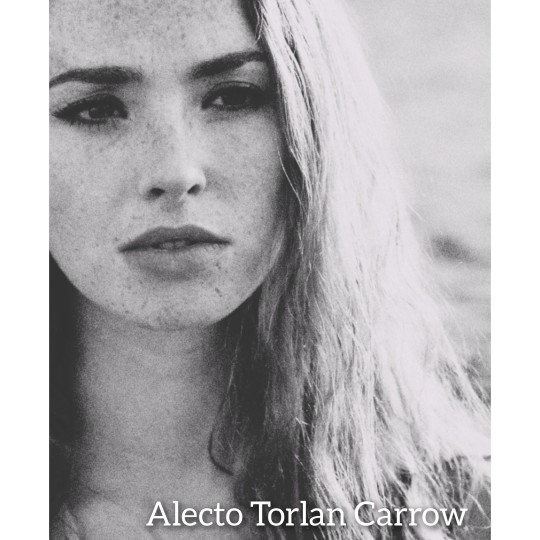
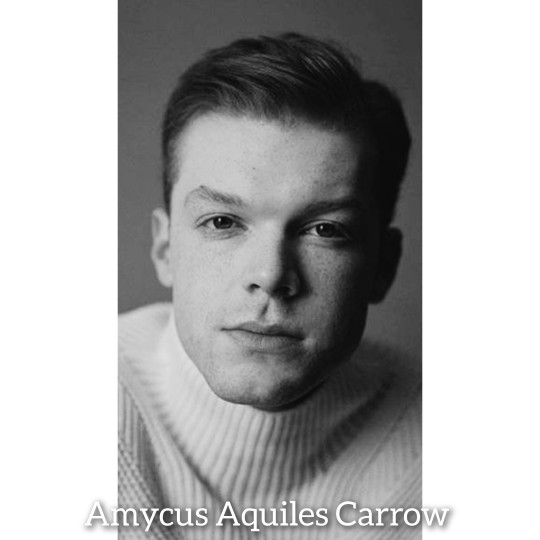
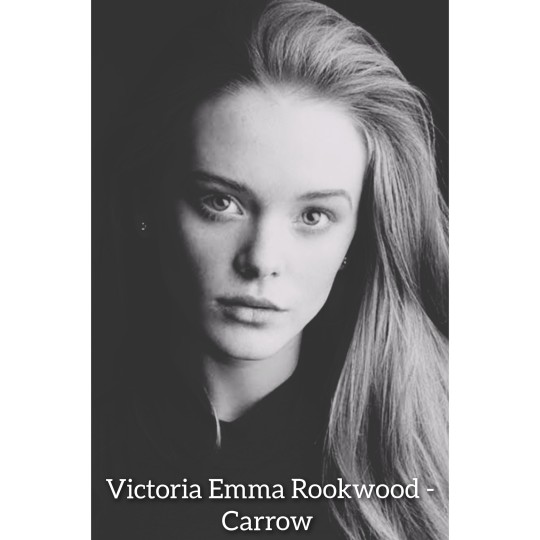


Alecto Carrow (1958 - 2020)
Amycus Carrow (1958 - 2020)
Victoria Rookwood (1959 - 2023)
Melissa Carrow (1982 - )
Aspásia Carrow (1983 - )
Alecto and Amycus were twins, Alecto was born 5 minutes earlier, although they both served Voldemort in the first war, they were only marked during the second wizarding war and that was the only reason they escaped Askaban at the first time.
Amycus married after the fall of Voldemort and had two daughters.
Alecto never married becoming a renowned dualist, having won several competitions on behalf of Great Britain, although she was excellent she still could not compare to Bellatrix who had been trained by the Dark Lord himself.
1 note
·
View note
Text
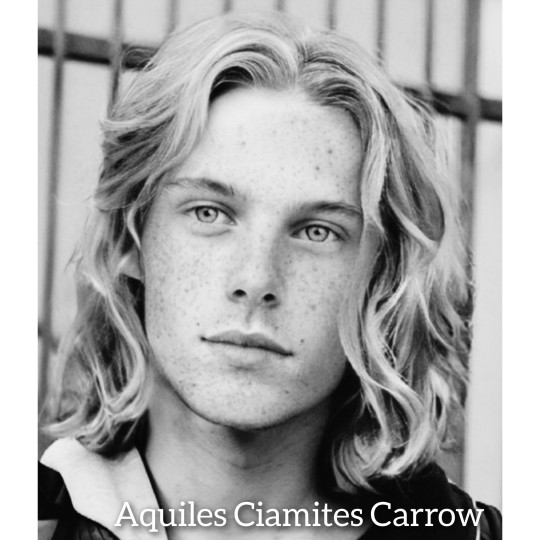
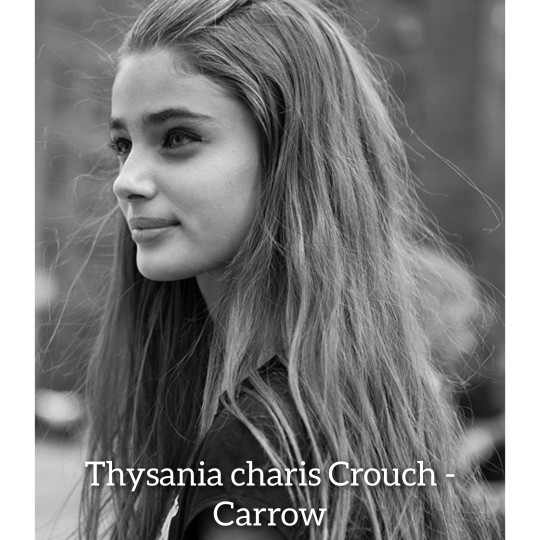
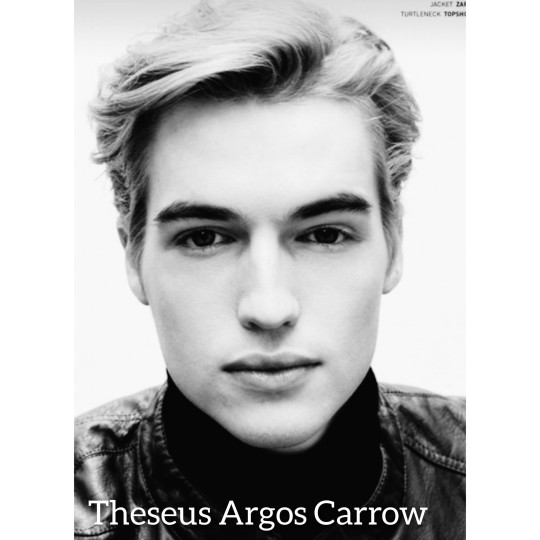
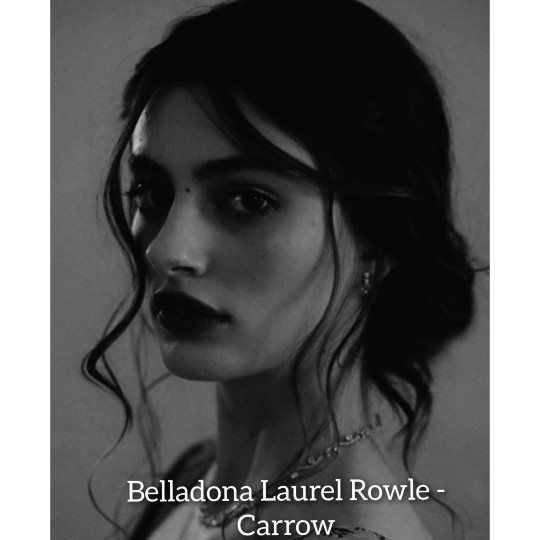
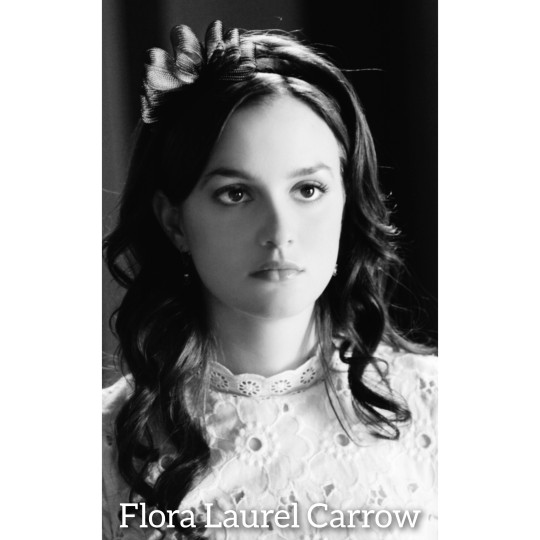


Carrow family - part I
Aquiles Carrow (1938 - 2021)
Thysania Crouch (1940 - )
Theseus Carrow (1955 - )
Belladona Rowle (1964 - )
Flora Carrow (1982 - 2020)
Hestia Carrow (1982 - 2020)
Perseus Carrow (1985 - )
Aquiles did not belong to Tom Riddle's generation and was not involved in the war, although like many other pureblood families they supported his ideals.
He had a sister four years younger who married Corvus Lestrange.
He married Thysania Crouch with whom he had three children, Theseus born in 1955 and twins Amycus and Alecto born in 1958. Theseus always preferred the academic side, becoming a scholar of magical theory.
Theseus later married Belladona Rowle with whom he would have three children, sisters Flora and Hestia and a boy, Perseus.
1 note
·
View note
Text

They had seven children, for seven stars in the sky.
#harry potter#hp#portraits#aesthetic#black family#sirius black#sirius x bellatrix#bellatrix black#pureblood#hp meta
5 notes
·
View notes
